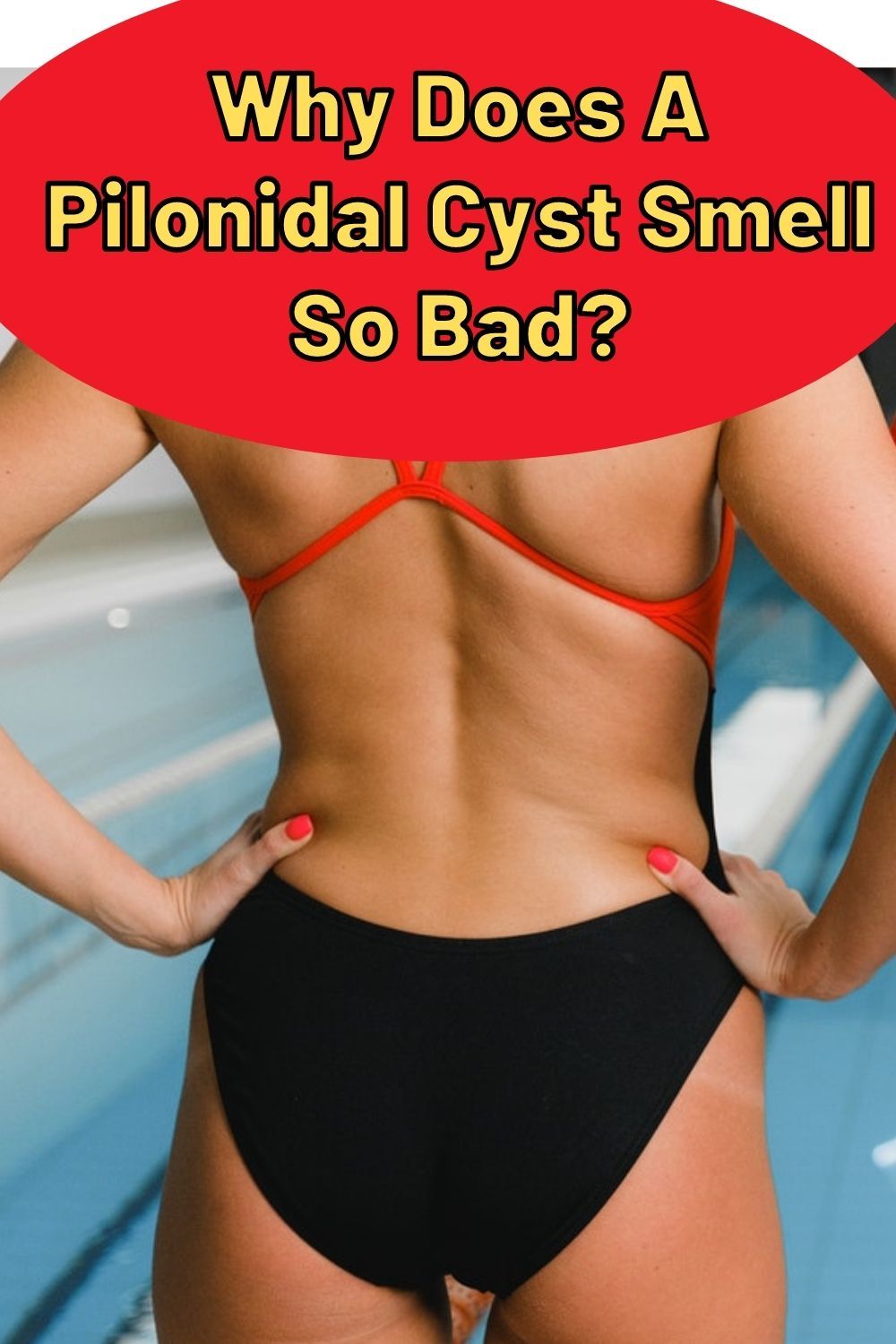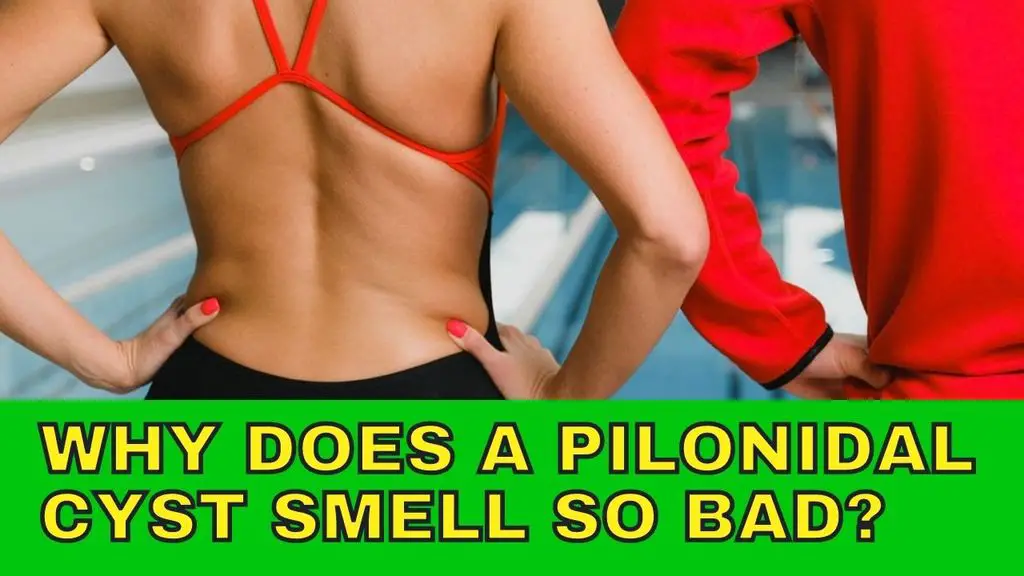Pilonidal cysts are painful and embarrassing cysts that form at the top of the cleft of the buttocks, where your bottom joins your back. Aside from causing significant discomfort and increasing the chance of infection, pilonidal cysts can also smell very bad, causing extra embarrassment to the sufferer.
So, what should you know about pilonidal cysts? How can you treat them? And why do they smell so bad?
Let’s find out.
What Is a Pilonidal Cyst?
A pilonidal cyst can range from a sore, inflamed spot on your lower back to a serious, extremely painful abscess. Pilonidal cysts are thought to be caused by ingrowing hair or trapped hair, either from the buttocks themselves or from somewhere else.
Hair may gather in the cleft of the buttocks, where there is a small opening called the pilonidal sinus. Dirt, hair, and other debris can get into the pilonidal sinus and cause an infection, known as a pilonidal cyst.
Symptoms of a pilonidal cyst include:
- Inflammation, tenderness, and swelling at your tailbone, and just above the cleft of the buttocks
- Pain in the affected area
- Difficulty sitting due to pain
- Pus in the affected area
- Possible nausea, fever, or other physical symptoms.
Pilonidal cysts are not cancerous, although they may need treatment to relieve pain and reduce the chance of infection.
Is it good if a pilonidal cyst is draining?
If your pilonidal cyst is swollen, leaking blood and pus, and causing you pain, it has become infected and developed an abscess. Your doctor might recommend antibiotics to start with, but if the antibiotics don’t work, you may need to drain the abscess.
You might notice pus leaking from the cyst, but that doesn’t mean that it’s draining. There is a chance that the cyst will drain by itself. While this can provide welcome relief, you should keep an eye on the area in case of infection. Keep the area clean, dry, and try to avoid sitting for long periods.

Why Does a Pilonidal Cyst Smell so Bad?
Smelly pilonidal cysts mean that an abscess has formed. Abscesses are infected areas which can form in almost any area of the body. Due to oozing pus, infected matter, or even blood, abscesses tend to smell very bad indeed.
Since a pilonidal cyst can form in an awkward area of the body (just above the cleft of the buttocks) leaking pus can dribble down and become trapped in the cleft of the buttocks. This can be a hot and sweaty area, and combined with an abscess, this is a recipe for something very smelly.
Keeping the area clean and dry is one of the best ways to combat the smell of an abscess. However, a sure-fire way of getting rid of the smell is to get the root cause – the abscess – treated.
What do I do if my pilonidal cyst pops?
If your pilonidal cyst pops, you may experience a wonderful sense of relief. The pressure is gone, and the pain will begin to fade.
However, it’s important that you take immediate steps to clean the wound. The pus and infected matter inside the cyst have burst out, leaving an open wound, and getting infected matter on your skin.
You may want to consult a doctor after a pilonidal cyst pops, just to check that there’s no infection. However, your injury may clear up nicely by itself.
Start by thoroughly but gently rinsing and washing the infected area. Be sure to dry the wound properly before putting your clothes back on, and try and avoid sitting for prolonged periods, if you can.
Regularly wash and dry the burst cyst as it heals. You may need to do this several times a day.
How can I stop my pilonidal cyst from coming back?
There is a genetic component to pilonidal cysts. However, certain factors can increase the likelihood of your getting one of these painful cysts:
- Being overweight (this can put extra pressure on your pilonidal sinus, and push hair and debris towards the area)
- Sitting down for extended periods of time
- Frequent skin irritation in the affected area
- An injury in the infected area
- Poor hygiene and not drying your skin properly after washing
While there isn’t much you can do about a genetic condition, losing weight (if possible), being more active, and thoroughly washing and drying the affected area can all go a long way towards preventing your pilonidal cysts from returning.

